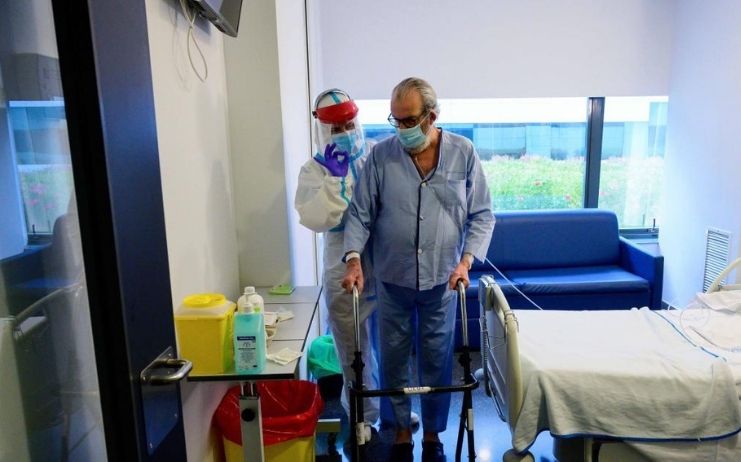Therapies Included In Covid-19 Rehabilitation Program
By: Nimba - April 9, 2021
Many people who have suffered from the effects of this disease might now be at risk of long-term impairment which is unknown yet, but a rehabilitation program for the covid-19 patient is to reduce the impact of COVID-19 on the health and function of people.
The rehabilitation program includes:
-
-
- Pulmonary rehabilitation
- Cognitive rehabilitation
- Mental health support
-
Complications of COVID-19
COVID-19 can affect the body in a variety of ways. While 81% of people experience mild to moderate symptoms and recover without treatment, 14% develop severe symptoms that can last several weeks or months.
-
-
- Lung damage
- Heart damage or inflammation, such as myocarditis or pericarditis
- Cognitive impairments that affect memory or concentration
- Conditions that affect the blood vessels, such as clotting
- Lasting effects from complications, such as heart attacks, stroke, or pulmonary embolism
- The mental effects such as anxiety, depression, or trauma
- Muscle or joint pain
- Chronic fatigue in the body
-
- Pulmonary rehabilitation:
The very 1st symptom of COVID-19 is decreased Oxygen level, shortness of breath, these can have long-term effects on lung function. Chronic illness can affect the lungs, such as chronic obstructive pulmonary disease.
Pulmonary rehabilitation through respiratory yoga therapy and respiratory physiotherapy helps in
-
-
- Reducing shortness of breath
- Improving lung capacity
- Managing any respiratory complications
- Reducing the impact of respiratory symptoms on mental health
-
Specific interventions through Yoga can ease symptoms such as coughing, wheezing, and shortness of breath. Breathing exercises (Pranayama) include
-
-
- Training to adjust someone’s breathing rhythm
- Techniques to strengthen the breathing muscles
- Expectoration training, which helps someone clear mucus from the airways
-
Treatments through Naturopathy and Ayurveda:
-
-
- Hydrotherapy – Asthma bath, Hot Foot and Arm Bath
- Acupuncture
- Uro Vasti
-
- Cognitive rehabilitation:
COVID-19 can also impact the nervous system, including the brain.
Symptoms:
-
-
- Memory problems
- Trouble concentrating
- Brain fog
- Dramatic mood changes
-
- A loss of taste or smell
People with severe COVID-19 may also experience cognitive changes. Up to 80% of people who receive ventilation can experience delirium, which can include hallucinations. For critically ill patients who do not need ventilation, the condition affects 20–40%.
Cognitive rehabilitation therapy (CRT) can help manage or potentially recover hallucinations.
CRT helps to strengthen cognitive abilities. This may include:
-
-
- Memory training
- Speech therapy
- Mental exercises
- Psychological support for people who feel confused or disoriented
-
Yogic intervention in Cognitive Rehabilitation:
Treatments:
-
-
- Deep Relaxation Techniques
- Yoga Nidra
- AUM-kara Meditation
- AUM-kara Chanting
- Simhasana
- Bhramari Pranayam
- Bhasthrika
- Kapalbhati
-
Mental health support:
Patients who spent long days in the hospital are prone to psychological trauma. Trauma may cause anxiety, depression, or disassociation, which refers to a feeling of disconnection from a person’s thoughts, feelings, or experiences also.
It is important to accept that it will take time to recover physically and psychologically. It can be useful to set small realistic goals to help you see your progress and feel better about yourself.
-
-
- Psychological Counseling
- Hypnotherapy
- Raga therapy
- Energy Healing
- Activities that ease stress and anxiety, such as yoga or mindfulness
-





